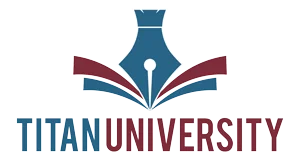Attention Professional Engineers licensed in Florida! You must complete 18 continuing education (CE) hours every two years to renew your license. These Florida PDH Courses are crucial for maintaining your credentials.
Of the 18 hours, one must cover Florida laws and rules from a Board-approved provider, and one must be dedicated to professional ethics. Four hours should be related to your specific area of practice—civil, electrical, chemical, mechanical, environmental, or structural engineering. The remaining 12 hours can cover any relevant engineering topic.
Engaging in Florida PDH Courses keeps you updated with the latest advancements and meets licensing requirements. Additionally, these courses offer networking opportunities and insights from industry experts. Stay competitive, informed, and compliant by investing in your professional development today.

Civil Engineer
Responsible for the planning, designing, constructing, or repairing of various types of buildings and infrastructure projects, civil engineers play a crucial role in ensuring that structures and systems are assembled correctly. Depending on the specific job, civil engineers may be involved in a project from its inception to completion. Alternatively, they might only participate in certain stages of the project.
Civil 18-Hours Florida PDH Courses (Package)
License 878, Provider 0009912
Electrical Engineer
Electrical engineering is a field that involves the design, development, testing, and supervision of the manufacture of electrical equipment. This can include a variety of devices, such as electric motors, radar and navigation systems, communications systems, and power generation equipment. Additionally, electrical engineers may be responsible for designing the electrical systems of automobiles and aircraft. As highly skilled professionals, electrical engineers play a critical role in the development and advancement of technology across a range of industries.
Electrical 18-Hour Florida PDH Courses (Package)
License 878, Provider 0009912
Mechanical Engineer
Mechanical engineers are routinely responsible for creating machines that function properly, a task that requires a great deal of skill and expertise. Fortunately, modern computer technology has revolutionized the way mechanical engineers work. By helping them to design, simulate, and test machines with greater accuracy and efficiency than ever before, these advancements have made a significant impact. Furthermore, by integrating sensors, controllers, and other advanced technologies into their designs, mechanical engineers are able to create machines that are safer, more reliable, and more effective than ever before. As a result, the field of mechanical engineering has seen tremendous improvements in both the quality and performance of the machines being developed.
Mechanical 18-Hours Florida PDH Courses (Package)
License 878, Provider 0009912
Chemical Engineer
Chemical engineers play a vital role in today’s world. Firstly, they are responsible for creating and designing processes that help to produce everyday products, from food and beverages to pharmaceuticals and cosmetics. Additionally, they are involved in developing new technologies that can help solve environmental problems, such as reducing greenhouse gas emissions and improving waste management. Without chemical engineers, modern society would not function as efficiently and sustainably as it does today. Therefore, it’s safe to say that the role of chemical engineers is not just important, but absolutely crucial!
Chemical 18-Hours Florida PDH Courses (Package)
License 878, Provider 0009912
Environmental Engineer
Environmental engineers play a crucial role in protecting our planet. To begin with, they are responsible for preparing, reviewing, updating, and presenting reports on environmental issues. Additionally, they design systems to ensure the safety of our air and water. Furthermore, they obtain and maintain permits and procedures to ensure that all regulations are met. Without their expertise, our environment would be at risk. Therefore, the work of environmental engineers is essential for safeguarding the natural world.
Environmental 18-Hours Florida PDH Courses (Package)
License 878, Provider 0009912
Structural Engineer
Structural engineers ensure that the buildings and structures we rely on are safe, strong, and resilient. First, they use their expertise to calculate the stability, strength, and rigidity required for each project. Then, they select the appropriate materials to ensure the structure can withstand the stresses and pressures of use and the environment. Whether it’s a new construction, conversion, or renovation, structural engineers serve as the critical link between design and reality. Thus, they ensure that the structures we build are not just beautiful, but also safe and functional.
Structural 18-Hours PDH Package
License 878, Provider 0009912
Frequently Asked Questions
PDHs, or Professional Development Hours, are a type of measure that is awarded to individuals based on the number of contact hours they participate in a presentation or training class. These PDH course hours are usually required by organizations or professional associations to maintain one’s professional license or certification.
In general, one PDH is awarded for each contact hour of training. This means that if you participate in a training session that lasts for one hour, you will earn one PDH. It’s important to note that the duration of the training session is not the only factor that determines the number of PDHs awarded. Other factors, such as the content and quality of the training, may also play a role in determining the number of PDHs awarded.
Overall, PDHs are an important measure of an individual’s commitment to ongoing professional development and are essential for maintaining licensure or certification in many fields. If you are pursuing a career that requires ongoing training and development, it’s important to understand the PDH system and how it can benefit your professional growth and development.
In the state of Florida, licensed Professional Engineers are required to complete 18 continuing education (CE) course hours every two years in order to renew their license. Out of these 18 hours, one hour must relate to Florida laws and rules of Professional Engineers from a Board-approved provider, and one hour must relate to professional ethics. Additionally, four hours must relate to the area of practice, which includes civil, electrical, chemical, mechanical, environmental, and structural engineering. The remaining 12 hours may be related to any topic pertinent to the practice of engineering. It is important for Professional Engineers to stay up to date with the latest developments and advancements in their field, and continuing education is a great way to achieve that.ay be related to any topic pertinent to the practice of engineering.
Titan University proudly boasts accreditation from the International Association for Continuing Education and Training (IACET). Our institution is dedicated to advancing the knowledge and skills of the workforce, and we are pleased to have attained this recognition from a prestigious accrediting agency. Our commitment to quality education is evident in our IACET accreditation, which reflects our adherence to rigorous standards and best practices in adult education. We are honored to be a part of the IACET community and will continue to strive towards excellence in our educational offerings.
It’s worth noting that in the state of Florida, licensed professional engineers have an obligation to complete 18 hours of continued education every 2 years to maintain their active licensure. At Titan University, we take pride in providing our students with the opportunity to fulfill this requirement. As an approved Professional Development Hour provider by the Florida Board of Professional Engineers, we ensure that our students receive quality education that meets the state’s standards. Our license number, 878, further attests to our commitment to providing top-notch training to engineers seeking to maintain their licensure.
If you are a professional engineer looking to earn Professional Development Hours (PDHs) in Florida, you may be interested in knowing that Titan University is a licensed provider of PDHs. We are accredited by the Florida Board of Professional Engineers (FBPE) and our license number is 878. You may find our license on the FBPE website here.
Additionally, we are an IACET accredited education provider, which indicates that our courses meet high standards of quality and relevance. If you are interested in expanding your knowledge and skills as a professional engineer, we encourage you to explore our course offerings and take advantage of our PDH opportunities.
Continuing Education Units (CEUs) and Professional Development Hours (PDHs) are two types of credits that professionals may earn to demonstrate their commitment to ongoing education and professional development. Although there are some similarities between the two, they are different and distinct credits with their own unique requirements.
PDH credits are typically used in industries that require licensed professionals to maintain their credentials by completing a certain number of hours of continuing education each year. A PDH credit is generally defined as “a contact hour of instruction or presentation”. On the other hand, CEUs are used in a wide range of industries and are often associated with professional associations, trade organizations, and educational institutions. CEUs are typically awarded for participation in non-degree courses and training programs.
In many cases, professionals may be required to earn a specific number of PDH or CEU credits in order to maintain their licensure or certification. It is important to note that the requirements for earning and maintaining these credits can vary depending on the industry and the specific credential being pursued.
For example, IACET accredited companies like Titan University may utilize CEUs for their courses. In this case, one CEU is equal to 10 hours of instruction. This means that if a course is worth 30 hours of instruction, a participant would earn 3 CEUs upon completion. It is also worth noting that in some cases, PDH and CEU credits may be interchangeable. For instance, one PDH credit may be equivalent to one CEU credit.
Overall, both PDH and CEU credits are important measures of professional development and ongoing education. They demonstrate a commitment to staying current with industry trends and best practices, and can help professionals maintain their credentials and advance their careers.


